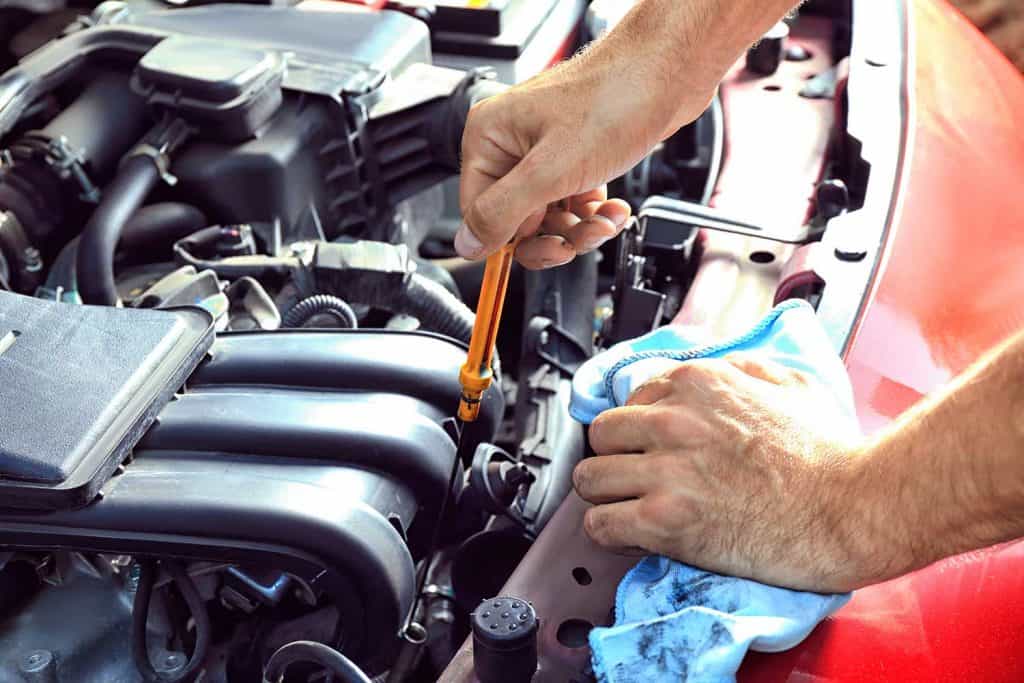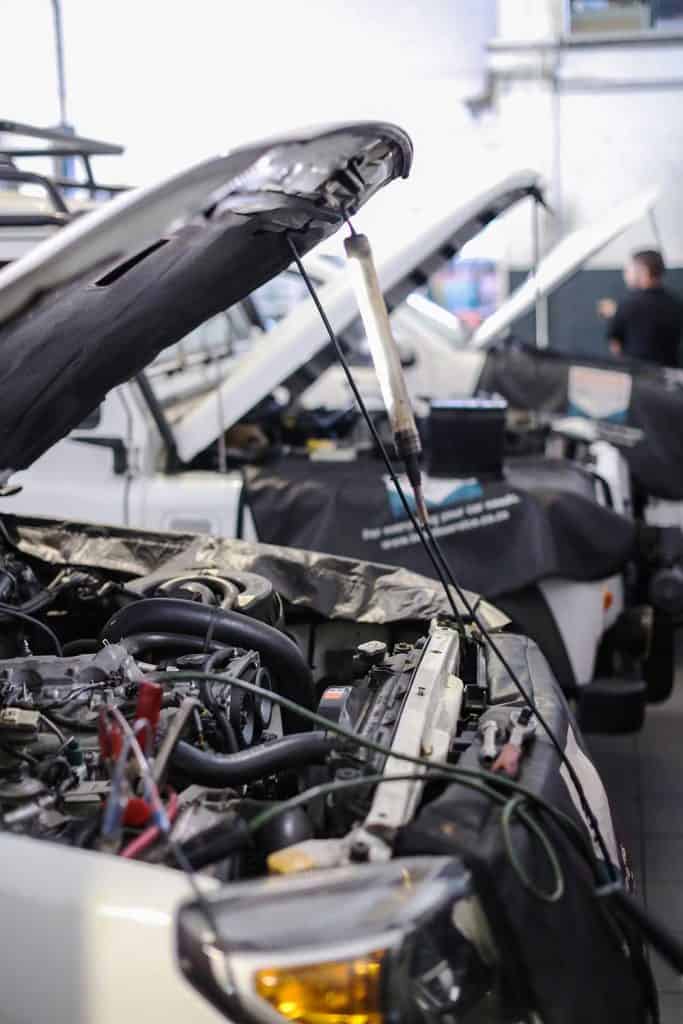Diesel vehicles are compression-ignited systems instead of spark-ignited like gasoline vehicles are. You may find yourself wondering how these vehicles receive enough power to move around so much weight. The majority of diesel owners consider the question of whether propane injections are worth the trouble. We've dug deep through forums and diesel truck sites for you to find the pros and cons of adding a propane injector.
Installing an injector will depend on whether you have modified your vehicle or not. The addition of a propane injector is a better fit for low to non-modified vehicles. The propane will give these types of trucks better mileage and torque increase without putting excessive stress on the engine. If you're able to work on your own vehicle, this could be a weekend project.
Now, this isn't to say you can't add an injector to a modified vehicle; however, it will come with more precautions. The two biggest benefits will be an increase in your fuel economy, and it will help keep your engine cleaner for longer. The benefits and drawbacks are about even; it really could just come down to your personal preference. Below we've outlined the pros and cons of a propane injection system, plus answering other questions you may have.
![A diesel technicians working on an engine in an auto repair shop, Is Propane Injection For Diesels Worth It? [A Thorough Discussion]](https://vehq.com/wp-content/uploads/2021/04/Is-Propane-Injection-For-Diesels-Worth-It-683x1024.png)
Is Propane Injection Worth It For Your Diesel?

So you've finished modifying the exterior of your diesel truck, lit kit, step bar, LED light bars. Now, what about the engine. An available engine modification is the propane injection system. This system can be moderately easy to install and will allow you to use 100% of your fuel versus the typical 75% used.
No need to worry about having the propane constantly on and running; you'll be able to install an on and off switch inside the cab to release propane when desired.
Advantages
- Reduces smoke emissions
- Gives you up to 20% more power
- Shortens passing time
- Burns cleaner and cooler
- Not a permanent change to your vehicle
- Burns 100% of fuel
- Has an on and off toggle switch
Disadvantages
- The added cost of propane
- Added power depends on the size of the turbo
- Need a high-flow performance exhaust
- May affect engine warranty
- Rough on the head gasket
- Public propane stations aren't common
- If not properly installed, it could put liquid propane into your engine
Due to the fact that you're burning 100% of your fuel, the propane system helps keep your engine stay cleaner, overall mileage economy increases, which will allow more time in between oil changes. Both of these factors will end up saving your time and money. Fully equipped kits are available through many brands and will come with all the parts you need. Propane tanks are large and can take up space in your truck bed. If the underside of your vehicle has space and clearance, you can seamlessly install it here.
Click here to see this injection kit on Amazon
Is it hard to install a propane injection kit?
On the other hand, if you do not have a way to lift the vehicle to put the tank underneath, you will need to take it to a specialty shop for it to be stationed. This process will cost you more for labor and can take multiple days to complete.
Before purchasing a kit, research what type of system design and horsepower your vehicle already has; too much torque to an engine that can't handle it could lead to permanent engine damage. We would also recommend talking to your warranty company to ensure this modification won't void any warranties.
How to Install A Propane Injection Kit
It will take a reasonable amount of maintenance knowledge and a range of tools to install an injection kit. After determining your current horsepower, purchasing a kit with the propane tank, hoses, injection pump, toggle, and exhaust system, it's time to get into it! Don't forget your personal protective equipment, too.
If you purchased a specific kit, it would generally come with instructions. The installation will require removing your air hosing tube to be able to drill a hole into for the mounting grommet. You'll be mounting the regulator bracket to the existing alternator and attaching valves and appropriately cut tubes to this. Another important step to keep in mind is to make sure your tube is completely secured to the water line for maximized propane vaporization. If any liquid gets into your engine, it could cause it to blow.
You can now begin bolting the physical tank to the vehicle's underside, switching out the stock exhaust with the new high-flow. Finally, line your propane fill line behind your license plate and test her out! Note: Wait until after installation to fill the propane tank.
See this installation on YouTube by POWERNATION:
How does propane injection work on a diesel?
Compression-ignited systems are in diesel vehicle engines, operating so that fuel is injected into the combustion chamber and ignited by high temperatures. The high temperatures are achieved when the engine piston compresses the diesel. Because propane has a low-pressure activation point, it allows for easy and fast compression into the chambers.
A nozzle is secured into the air intake tube and connected to the regulator and hot water line. The hot water will run through the regulator, meeting the liquid propane and vaporizing it. This newly vaporized propane now intergrades into the chambers to add a boost to the fuel already there.
Click here to view this propane enrichment kit on Amazon
Propane's chemical construction contains a higher octane level than diesel, allowing it to burn slower and cooler. By introducing propane vapor to the diesel, the fuel will now burn at a level pace and more efficiently than without. Each chamber is sprayed separately, so it doesn't overwhelm the engine and runs to maximum potential. A correctly installed kit will give you better fuel mileage, increase your power, and lower the dangerous emissions given off from the exhaust.
The emissions given off by diesel vehicles are compounds called nitrogen oxide. Nitrogen oxide is a frequent negative impact on air pollution. With the usage of an after-treatment exhaust system, your vehicle will be able to break down these molecules into nitrogen and water.

Is there a difference between LP gas and propane?
LP gas or LPG stands for liquid petroleum gas, otherwise known as propane! Both names are interchangeable since they're made of the same particle composition. Not only is there LPG, but there is also another form of a gas called CNG, which is compressed natural gas. Compressed natural gas is an eco-friendly substitute for gasoline and diesel.
CNG is made by compressing methane down to or less than 1% of its mass and has been gaining popularity since 2008. This process churns out a fuel source that is harmless and will not pollute groundwater. A few examples of vehicles are already using CNG and propane, including buses, transporters, and agricultural machinery.
When taking into consideration both types of gas, LPG will be the most frequently used kit. Due to its low-pressure levels, propane can more readily turn into vapor to give your vehicle a quick boost. Along with that positive aspect, the installation system for propane injections is far less complex than a CNG would be. The complexity of a CNG conversion could require the cooling system and cylinder heads to be modified. In the end, an LPG or propane enhancement would better serve you in the long run.
Can you run a diesel on propane?
Diesel vehicles are first assembled as one fuel system. A bonus is the fact they can be converted into a bi-fuel system. Owners of diesel trucks tend to use propane as the second fuel source when converting. Bi-fuel systems, in this case, work out at a 60:40 usage ratio, 60 for diesel and 40 for propane.
Propane injections assist diesel fuel chambers to work to their top capacity. The injections put in a boost of power while keeping the engine running clean and maintaining a low temperature. On the other hand, if you want a full propane fuel system, there are dedicated propane-only vehicles that are more simple to purchase rather than convert a full diesel truck.
Final thoughts
Owning a diesel truck is already a world of its own. Now, let's take it to the next level. You can amplify your torque and overall fuel usage with a relatively easy modification. Propane injections for diesel attach onto your car's water line and regulator to vaporize liquid propane before it hits your engine.
While it is, by and large, recommended for stock diesel vehicles, moderately altered vehicles are still able to receive this upgrade. You control this vapor additive, whenever you need it with a flip of the toggle switch in the cab. Kits are available for purchase if you have a lift to do it yourself. Otherwise, your local specialty shop will be able to get 'er done and ready to go.
Ready to further your knowledge of the world of car maintenance? Check out these articles below:



Thank you for talking about how we can purchase a kit to repair our vehicle by researching the system. My husband’s diesel truck has not been working well for the last month. I think we will actually call a great diesel repair service.